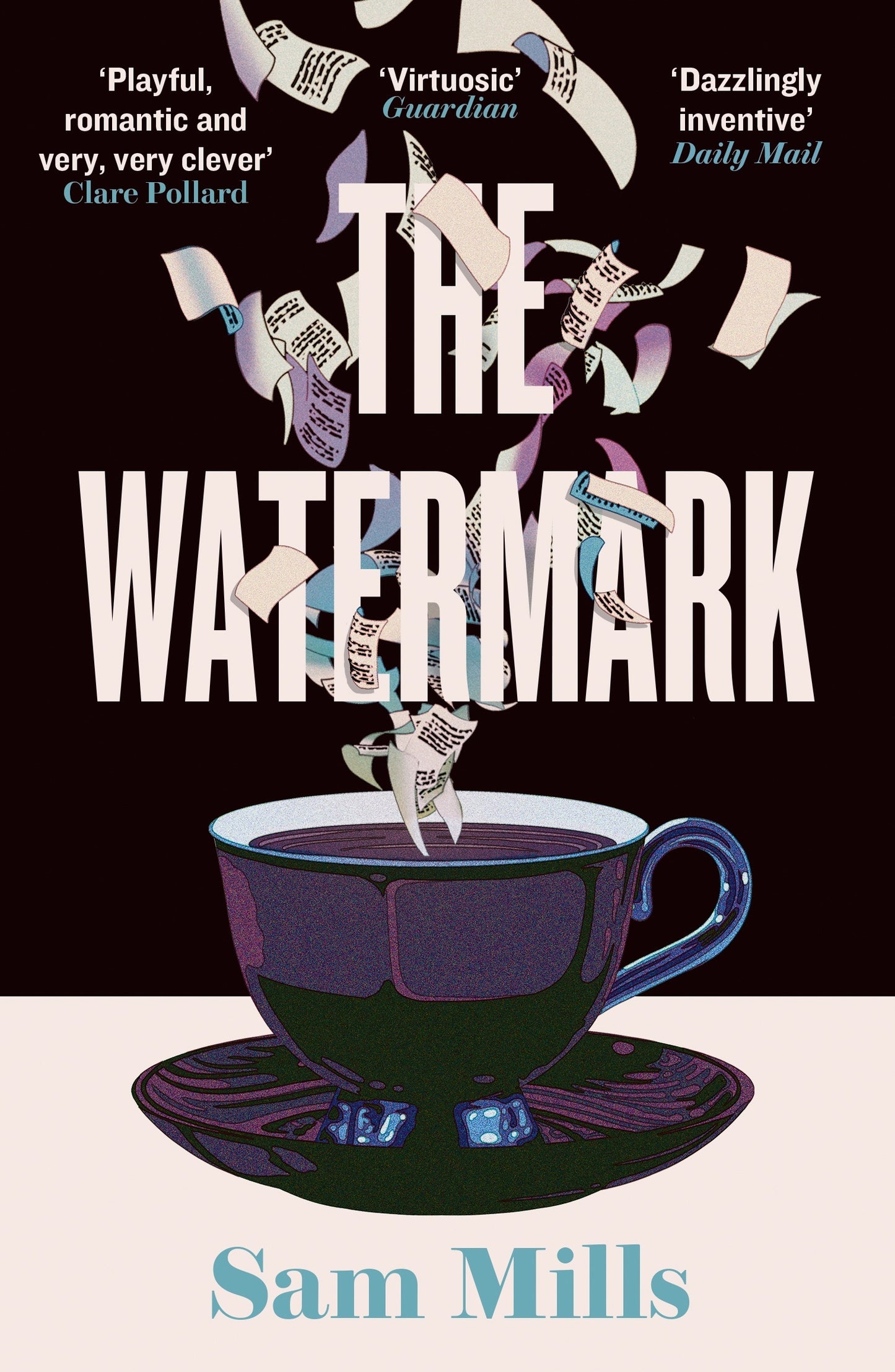Sam Mills
The Watermark
The Watermark
Couldn't load pickup availability
Two star-crossed lovers tumble between fictional worlds in this breathtakingly inventive exploration of the lives we lead and the stories we tell in the course of a relationship.
SAM'S REVIEW
Booksellers, like librarians, have to determine which categories to assign to books. Does Pride and Prejudice go under Classics, Fiction or Romance? Does Homer's The Odyssey go in History or Mythology? Boris Johnson’s book is theoretically a Biography, but given his propensity for embroidering the truth, might more appropriately belong in Fiction. The Watermark, the latest novel from British writer Sam Mills, seems designed to confound classification and drive booksellers and librarians to distraction.
The story begins with budding writer Jaimie setting off to interview a legendary author, the reclusive and nominatively-determined Augustus Fate. Fate is in the process of writing his latest, long-awaited novel, and desperate to finally win the Booker Prize for which he has been shortlisted seven times. Jaime is just desperate for the interview to be a success: his life is stuck in the “same flimsy, leaking waterlogged boat” as many of his over-qualified, under-employed peers. To add to his woes, Rachel, a woman he fell in love with on a suicide forum, has disappeared. (We learn as the book progresses that Rachel was there to try and understand events from her past, while Jaime was researching an article he was writing.)
Jaime arrives at Fate’s remote house to be greeted by the author looking “as though he belonged in the title role of King Lear, hurling obscenities into the wind.” Fate soon states his approach to character like that of the great Russian writer, Nabokov, who “saw his own characters as galley slaves. That is as it should be.” The stage for complications is set.
In order to imbue his fictional characters with emotion, Fate decides to make Jaime his galley slave. He drugs him with a specially blended, hallucinogenic tea, ties him to a bed, connects wires to his head, and harnesses his captive’s subconscious, all of it in aid of his latest tilt at the Booker, his Dickensian novel, Thomas Turridge. Jaime awakes in the book as schoolboy Thomas, unaware of the existence of his real life. He is playing with a young friend under the watchful eye of her governess called Rachel. Yes, this Rachel is the one that disappeared from Jamie’s real life, Fate having already lured her to his cottage a month before Jaime's arrival, then taken her captive in the same manner for the same reason.
By way of undermining Fate’s ambition, anachronisms soon begin to appear in the story, and Jaime begins to hear Fate’s words on the page as voices in his head. He comes to realise that he's trapped in the story, alongside Rachel and Mr Gwent, an eccentric friend of his/Thomas’ father. Gwent has been trapped for far longer than Jaime and Rachel and accepts that he will never escape but decides to help the two of them jump from Fate’s story into one of his own, as the first step on their path back to reality.
Their journey takes them from Gwent’s Nick Hornby-esque Manchester, onto a fantasy-tinged folktale in Czarist Russia, a futuristic robot-filled London and a final setting which I won't give away. In each story the two star-crossed lovers battle Fate and their own impulses. Jaime is optimistic but practical, determined to survive the perils of the stories and return to the real world. Rachel is conflicted. She confesses that “[the moment … I entered Fate's world was euphoric” and is tempted to stay within it, remarking: “What do you do when the narrative of your world is one that you can no longer believe in?” Her nihilism feels at once a reflection of the hopelessness caused by depression and, given passages within the book on the ills of late-stage capitalism, the hopelessness felt by younger generations whose jobs are being taken by AI while they're priced out of the housing market and face environmental catastrophe. Will Fate’s fictional worlds provide balm for her or ballast to Jaime’s argument for escape and hope?
The Watermark is a love story as written by Lewis Carroll and Charlie Kaufman, with a dash of Dr Who. It could have been far too clever for its own good. The meta-narrative could, like Fate's own writing, have lost emotional impact. Mills could have failed to juggle the plots, literary references and social commentary. That she keeps all these plates spinning and we find ourselves rooting for Jaime and Rachel’s escape is quite the feat. Wildly imaginative and craftily detailed, The Watermark explores how love can heal and remake us and asks whether the stories we create for ourselves conspire to keep us captive or help us to change our fate.
PUBLISHER REVIEW
Share


